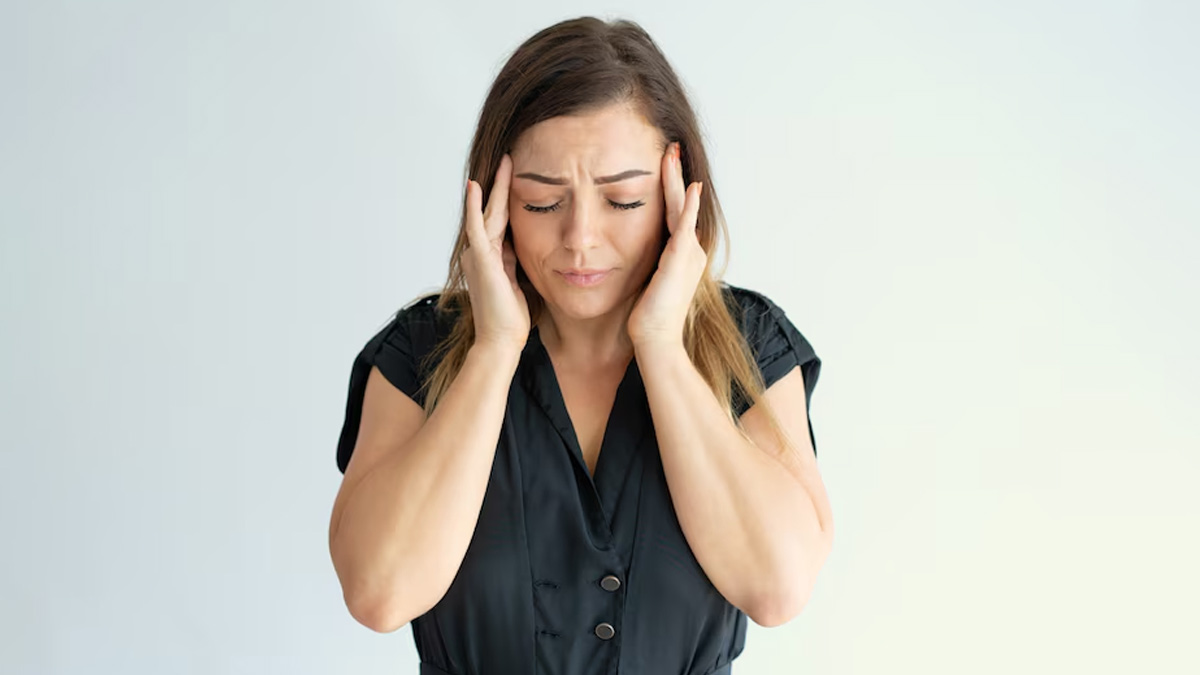
Cluster headaches are one of the most excruciating types of headaches, often described as a sharp, stabbing pain that strikes suddenly, typically affecting one side of the head. Unlike migraines, which can last for hours or even days, cluster headaches come in episodes, sometimes occurring several times in a single day.
Table of Content:-
To understand more about cluster headaches, OnlyMyHeath interacted with Dr Pramod V Satya, Consultant - Internal Medicine, Manipal Hospital, Bengaluru.
Understanding Cluster Headaches
Cluster headaches are notorious for their intensity and frequency. They derive their name from the "clusters" of attacks that individuals experience. Dr Satya, "Cluster headaches are called clusters because they occur in episodes. These episodes involve unilateral, sudden, severe, and sharp head pain, usually lasting from 15 minutes to 3 hours. It's not uncommon for someone to experience these headaches multiple times a day, ranging from one to eight episodes daily."
These episodes often occur at the same time each day, especially in the early morning or late at night, disrupting sleep and daily life. The pain is typically localised around one eye, which can become red and teary, and the affected side of the face may also experience other symptoms like nasal congestion or a runny nose.
Also read: When Is The Right Time To See A Neurologist For Headaches? Watch Out For These Signs
Causes and Triggers

Despite extensive research, the exact cause of cluster headaches remains unclear. However, Dr Satya highlights some known associations, "Cluster headaches are usually associated with tobacco consumption, head trauma, and certain genetic components in the family." This suggests that lifestyle factors and heredity may play significant roles in predisposing individuals to these debilitating headaches.
Triggers can vary from person to person, but common ones include alcohol, strong odours, and certain foods. Maintaining a consistent sleep schedule and managing stress levels are also crucial, as irregular sleep and high stress are known to exacerbate these headaches.
Symptoms and Associated Conditions
The hallmark of cluster headaches is their intensity and sudden onset. "The headache is usually associated with severe lacrimation, watering of the eye, runny nose, and redness in the eyes," says Dr Satya. In addition to these symptoms, some individuals may experience autonomic symptoms such as ptosis (drooping of the upper eyelid) or miosis (constriction of the pupil). These symptoms are often confined to the side of the head where the headache occurs.
Cluster headaches can also be accompanied by restlessness and agitation. Unlike those with migraines, who may seek relief in a dark, quiet room, individuals experiencing a cluster headache often find themselves pacing or rocking back and forth, unable to sit still due to the severity of the pain.

Also read: How To Treat Headaches Caused By Lack Of Sleep?
Management
Managing cluster headaches involves both acute and preventive strategies. For immediate relief during an attack, high-concentration oxygen therapy is often used, as it can help reduce the severity and duration of the headache. Medications like sumatriptan and ergotamine are also commonly prescribed to alleviate pain.
For those who experience frequent cluster headaches, preventive measures are crucial. Dr Satya explains, "For individuals who experience repeated cluster headaches, they are often managed with calcium-channel blockers like verapamil, which help reduce the frequency and severity of attacks." These medications can be a lifeline for those with chronic cluster headaches, significantly improving their quality of life.

In addition to medical treatments, lifestyle modifications play a key role in managing cluster headaches. Identifying and avoiding triggers, maintaining a regular sleep schedule, and managing stress through relaxation techniques like meditation or yoga can help reduce the likelihood of an attack.
Conclusion
Cluster headaches, though rare, are a severe form of headache that can significantly impact an individual's daily life. While the exact cause remains unknown, understanding the triggers, symptoms, and management options is essential for those affected. With proper treatment and lifestyle adjustments, the frequency and intensity of cluster headaches can be effectively managed, allowing individuals to regain control over their lives.
Also watch this video
Read Next
Mosquito-Mukt India: Understanding The Types Of Mosquito-Borne Diseases And How They Spread
How we keep this article up to date:
We work with experts and keep a close eye on the latest in health and wellness. Whenever there is a new research or helpful information, we update our articles with accurate and useful advice.
Current Version
